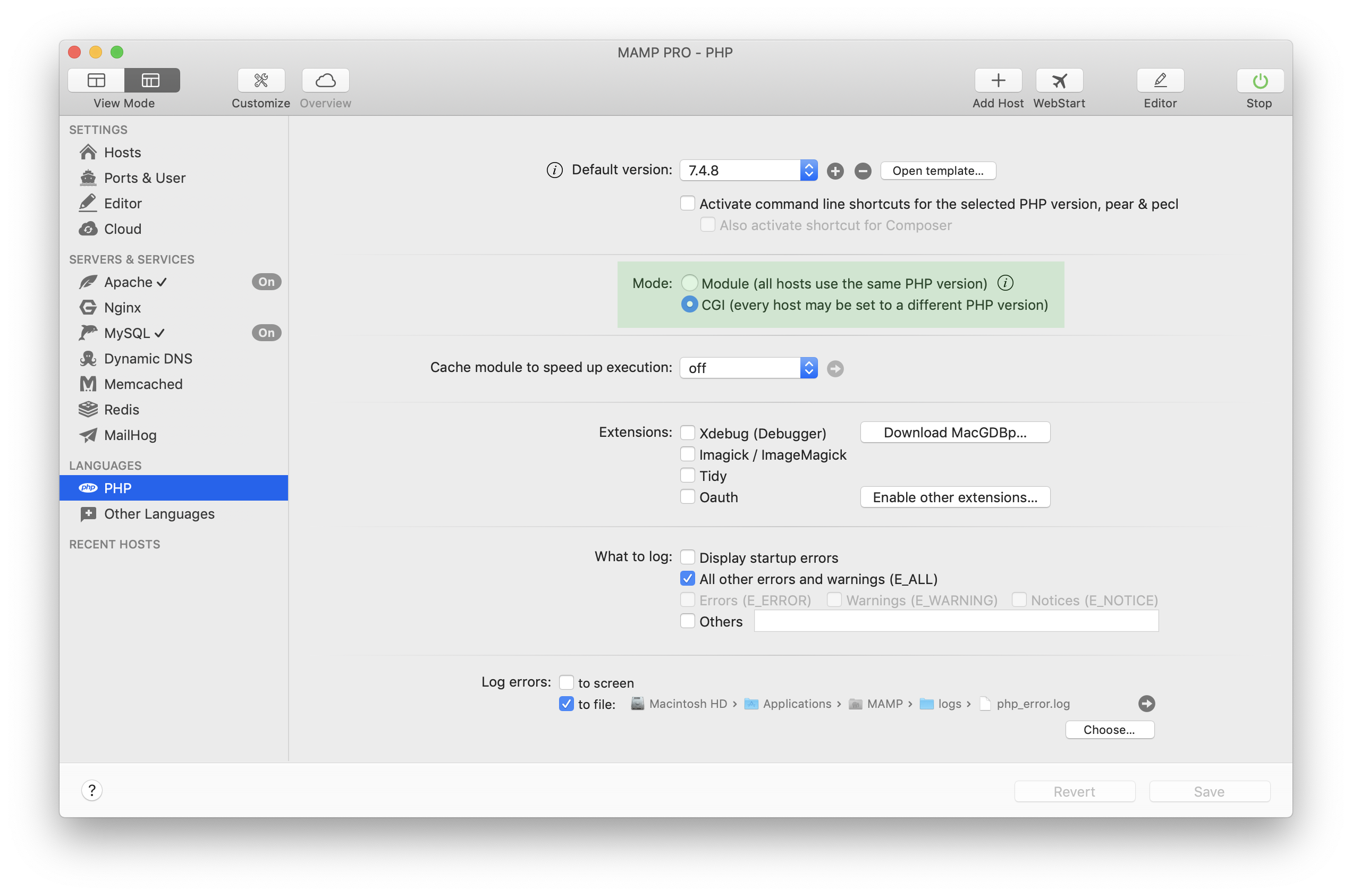

- #Mamp pro php memory limit how to#
- #Mamp pro php memory limit mac os#
- #Mamp pro php memory limit install#
- #Mamp pro php memory limit download#

#Mamp pro php memory limit download#
It is generally best to download and unzip Drupal directly in the document root (default is htdocs) so you don't miss the. htaccess file which is necessary for clean URLs to work. Note: if you use Finder you may miss moving the. Where yourdrupaldir is whatever you want the directory to be called. Mv drupal-x.x.x/* drupal-x.x.x/.htaccess /Applications/MAMP/htdocs/yourdrupaldir Move the directory containing the Drupal files into the MAMP htdocs directory: Open MAMP and click "start servers," then "Open start page." Download Drupal
#Mamp pro php memory limit install#
(This will install Apache, MySQL, and PHP in one step.)ĭownload and proceed through the installer to install MAMP.
#Mamp pro php memory limit mac os#
This page is to be used in conjunction with the installation instructions for Drupal on Mac OS X.Īlso you may want to check out this video in the Videocasts section of the handbook: Installing a Local Web Server on Mac OS X. This will make Drupal much easier to install because the components don't have to be installed separately.
#Mamp pro php memory limit how to#
More information on how to connect to MySQL using PHP (PHP = 5.6.x) can be found in our How To section.MAMP creates a local server environment on Mac OS X by installing PHP, MySQL, and Apache right out of the box. Please turn to the PHP documentation for further information.ĭetermine if errors should be recorded in a log file and/or displayed in a web browser window. Report further error types through constants. Possible problems, that do not concern PHP, but which could be a notice of an error in a script. Script errors that make the further execution of the current PHP script impossible. Log PHP errors that occur when Apache loads the PHP module. With Xdebug activated you can open the XDClinet debugger to enable PHP debugging.īy default, XDClient expects debugging information on port 9000 of localhost.ĭetermine which error types should be reported. You can learn more about OPcache here.Īctivate Xdebug to allow PHP to create debugging information during script execution.īy default, Xdebug uses localhost and port 9000 in the PHP.ini file. OPcache improves PHP performance by storing precompiled script bytecode in shared memory, thereby removing the need for PHP to load and parse scripts on each request. You can learn more about eaccelerator here. You can learn more about APC here.ĮAccelerator a free open-source PHP accelerator & optimizer. The Alternative PHP Cache (APC) is a free and open opcode cache for PHP. A particular cache is not available for the current PHP version if it is not enabled. Enabling a cache extension does not necessarily translate into greater execution speed. PHP has several cache extensions that can help speed up execution in certain circumstances. More information on how to change the PHP version for an individual host is covered in the Settings > Hosts > General section. Navigate to the Hosts section to change the PHP version for each individual host. In CGI Mode the PHP settings will be identical for all hosts – except for the PHP version. Individual PHP version for every host (CGI mode).In module mode all hosts use the same PHP version. Identical PHP versions for all hosts (module mode).You verify this by checking your System PATH in Advanced System Settings > Environment Variables > System Variables.Ĭhoose whether to use identical PHP versions for all hosts (module mode) or on a host by host basis (CGI mode). Make this version available on the command lineĬheck this option to add the current PHP version to the system path. Note: To remove unneeded PHP versions simply stop your servers, quit MAMP PRO, and remove your C:\MAMP\bin\php\phpX.XX directory, where X.XX is the version of PHP you want removed. To view the php template file press the “+” button. Select which PHP version will be the default version. MAMP PRO installs several versions of the PHP script interpreter.

PHP is a popular web scripting programming language.


 0 kommentar(er)
0 kommentar(er)
